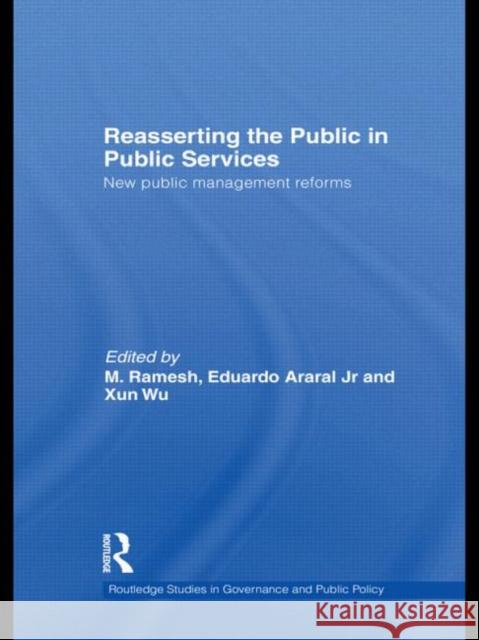Reasserting the Public in Public Services: New Public Management Reforms » książka
Reasserting the Public in Public Services: New Public Management Reforms
ISBN-13: 9780415547390 / Angielski / Twarda / 2010 / 240 str.
Reasserting the Public in Public Services: New Public Management Reforms
ISBN-13: 9780415547390 / Angielski / Twarda / 2010 / 240 str.
(netto: 693,98 VAT: 5%)
Najniższa cena z 30 dni: 705,23
ok. 22 dni roboczych
Dostawa w 2026 r.
Darmowa dostawa!
After two decades of dominating the public sector reform agenda, privatization is on the wane as states gradually reassert themselves in many formerly privatized sectors. The change of direction is a response to the realization that privatization is not working as intended, especially in public service sectors. This landmark volume brings together leading social scientists, including B. Guy Peters, Anthony Cheung and Jon Pierre, to systematically discuss the emerging patterns of the reassertion of the state in the delivery of essential public services. The state under these emerging arrangements assumes overall responsibility for and control over essential public service delivery, yet allows scope for market incentives and competition when they are known to work. The recent reforms thus display a more pragmatic and nuanced understanding of how markets work in public services . The first part of the book provides the theoretical context while the second provides sectoral studies of recent reforms in healthcare, education, transportation, electricity and water supply. It includes case studies from a range of countries: Brazil, China, South Korea, Singapore, Thailand, Vietnam, USA, Hong Kong and the UK. This book will be of interest to students and scholars in Political Science, Public Administration, Public Policy, Geography, Political Economy, Sociology, and Urban Planning.
After two decades of dominating the public sector reform agenda, privatization is on the wane as states gradually reassert themselves in many previously privatized sectors. The change of direction is in response to the realization that privatization is not working as intended, especially in public service sectors.
This landmark volume brings together leading social scientists including B Guy Peters, Anthony Cheung and Jon Pierre to systematically discuss the emerging patterns of the reassertion of the state in the delivery of essential public services, which are likely to shape state-society relations in the short to medium terms. The state under these emerging arrangements assumes overall responsibility for and control over essential public service delivery, yet allows scope for market incentives and competition when they are known to work. The recent reforms thus display a more pragmatic and nuanced understanding of how markets in public services work arrangement.
The first part of the book provides the theoretical context while the second provides sectoral studies of the more recent reforms in healthcare, education, public control and private service provision, electric power and water governance.
This book will be of interest to students and scholars in Political Science, Public Administration, Public Policy, Geography, Political Economy, Sociology, and Urban Planning.











